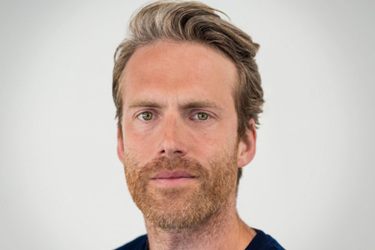AI Won't Save Us: Why We Must Save Ourselves
By Derk Arts

AI is not a knight in shining armor that will miraculously solve the deep-seated issues plaguing drug development. It can certainly help, but the notion that AI alone will save us is an illusion. In this article, I want to make the case that while AI offers powerful tools, the responsibility for fixing the system remains with us. We must avoid letting technology, particularly AI, become a crutch or a distraction from the real, urgent problems we face.
Much like carbon recapture technology is hailed as a potential solution for climate change yet remains far from fulfilling its promise, AI risks creating a false sense of security in drug development. There is potential in both areas, but it hasn’t yet been realized to the degree that justifies relaxing our efforts to address the root causes of these crises.
THE DRUG DEVELOPMENT CRISIS
Drug development is struggling. Velocity throughput through the drug development funnel is lower year over year; time-to-market has increased from 10 to 12+ years since 2010, while development costs now exceed $2.6 billion per successful drug. Pharma companies increasingly face a reality where their traditional models no longer yield viable returns. When blockbuster drugs lose patent protection and revenue drops precipitously, the so-called patent cliff looms large over many companies. Between 2022 and 2030, over 190 products face patent expiration, putting $300 billion in sales at risk. That's triple the impact of the 2016 patent cliff. This is further compounded by legislative changes like the Inflation Reduction Act (IRA), which introduces price negotiation mechanisms that may discourage investment in R&D. By capping potential returns on certain drugs, the IRA risks reducing R&D investment in less lucrative but critical therapeutic areas. This economic pressure drives pharma companies to focus on fewer but financially promising indications. The result? More companies are going after the same indications, increasing competition for trial participants and clinical trial resources.
Hospitals and trial sites, critical pillars of clinical trials, are already under significant strain due to the increased healthcare demands of an aging population and rising chronic illness. These pressures contribute to the burnout of healthcare workers and trial staff and will spur uncontrolled growth in healthcare expenditures relative to GDP. Governments and payers have started making tough choices as healthcare costs keep rising unchecked. Anthem Blue Cross Blue Shield recently attempted to cap anesthesia coverage during surgical procedures, and the government is set to reduce Medicare telehealth coverage starting January 1, 2025 — all this to say that pharmaceutical companies must find more cost-effective ways to develop drugs.
AI CANNOT SOLVE ALL PROBLEMS
When we hear about AI's role in drug development, it's typically in the context of accelerating early-stage research — finding new drug targets or predicting the properties of new molecules. Yet, given this context, it's clear that simply developing more drugs by identifying more targets using AI is not the answer. This approach may exacerbate existing issues. We need fewer drugs that make it to the clinical trial stage, not more. Leveraging AI to speed up medical writing also does not solve this problem. There are a lot of interesting, low-hanging fruit that AI can do that won't fix fundamental problems like site-level capacity issues, clinical staff burnout, or a lack of patients who are willing to participate.
So, while these advancements in AI are exciting and valuable, they do not address the core problems that are making drug development untenable. We face bottlenecks not in discovery but in the daily operations of clinical trials: patient enrollment, site management, data collection, and regulatory compliance.
The industry as a whole isn't ready to let AI operate autonomously within clinical trials either. Regulatory bodies and institutional review boards (IRBs) will take time to adapt to new models where AI directly influences decision-making in clinical settings. The FDA's approach to AI regulation demonstrates a critical reality: Successful implementation requires thoughtful integration with existing workflows and careful consideration of human factors. It and the other bodies and boards have a vested interest in protecting patient safety, meaning AI solutions will be closely scrutinized and continuously supervised — with the risk of adding to the workload rather than replacing it. We have seen examples of this around the decentralized trial boom during COVID-19, which ended up overburdening sites with technology.
FOCUS ON THE REAL BOTTLENECKS
So, what should we do? We need to bring automation, technology, and AI to the true bottlenecks of drug development — not just the early discovery phases or broader topics such as site selection but the nuts and bolts of clinical trial execution. AI can help reduce the day-to-day burden on clinical trial sites, automate repetitive tasks, and minimize the manual work that adds no value but leads to burnout.
Technology should also play a key role in improving patient engagement. Clear and accessible communication can make all the difference in ensuring patients understand what they are participating in and helps them stay enrolled in a study until completion — reducing costly dropouts. AI tools that enhance these touchpoints can dramatically improve patient experience without compromising safety.
Ultimately, AI will not be a panacea for the issues we face. It is part of the solution but not the whole answer. We must stay focused and committed to applying technology where it has the most impact, in areas where humans are currently overburdened and under-resourced.
With the right focus and a clear commitment, we can develop the drugs that patients need despite the unrelenting increase in healthcare costs and the growing complexities of modern medicine. But it starts with recognizing that we need to take proactive steps. AI can help light the way, but we must walk the path ourselves.
Derk Arts, MD, PhD, is a physician-entrepreneur and the founder and CEO of Castor. He empowers researchers with smart and scalable trial technologies, driving global impact with a focus on participant engagement.
